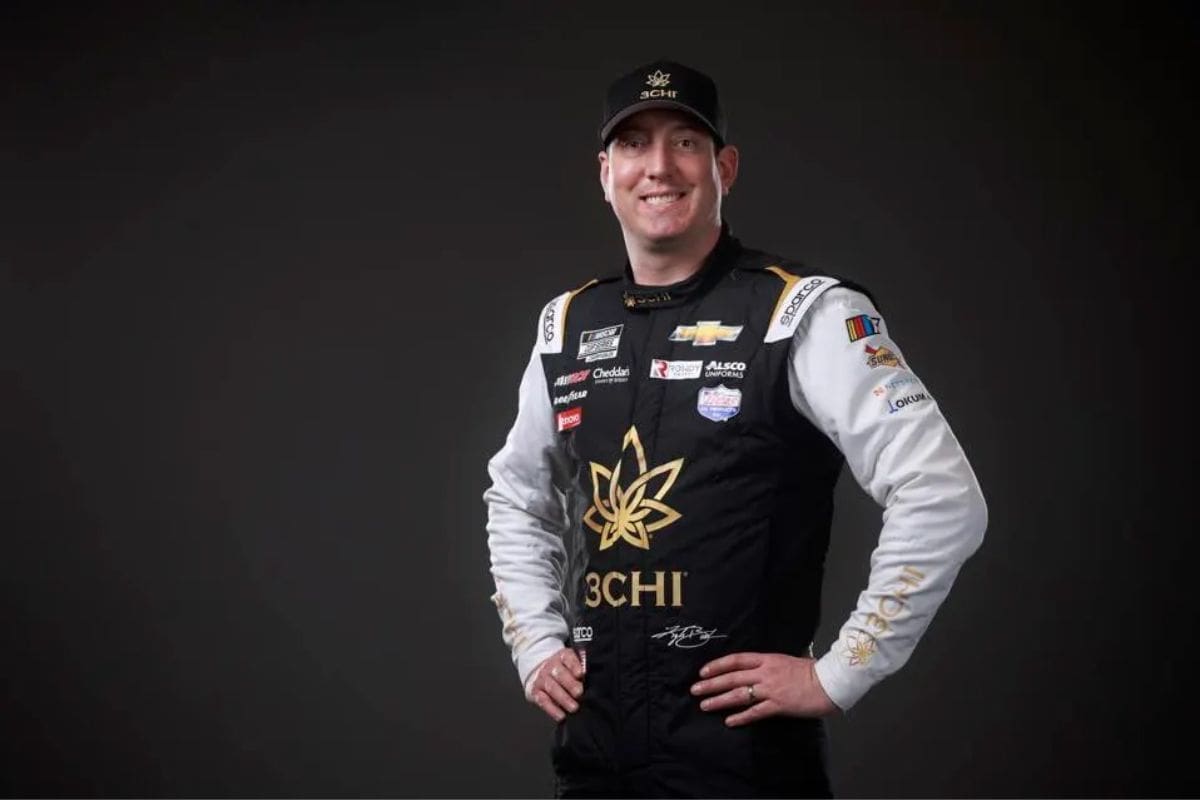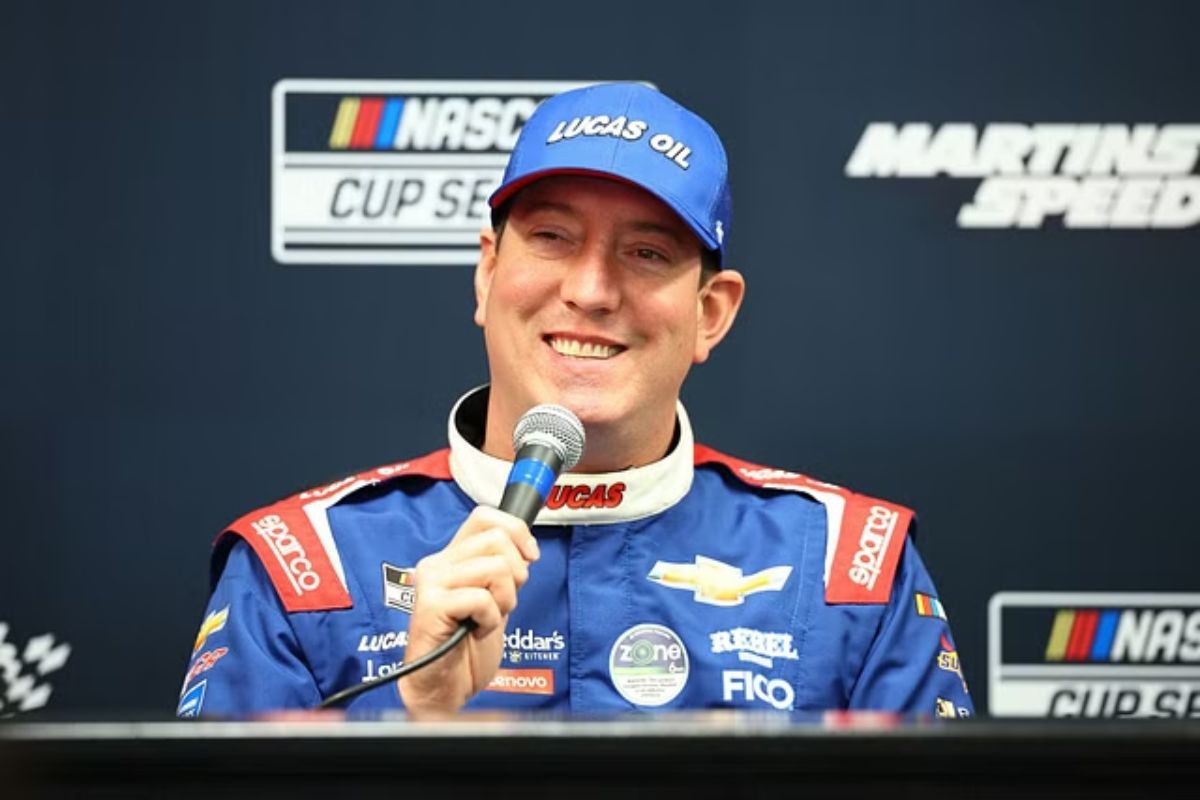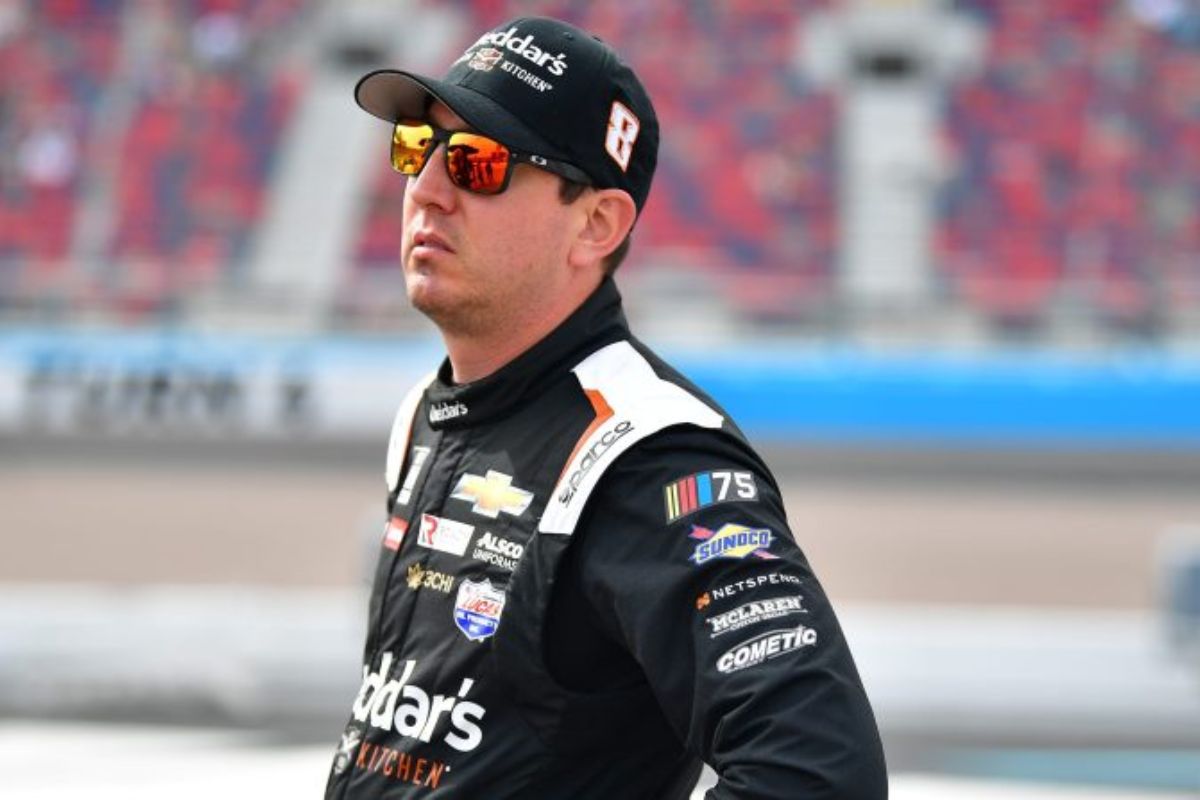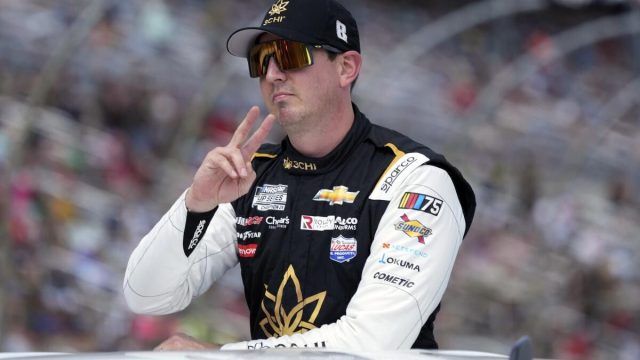Kyle Busch Blames Spire Motorsports: After Darlington race, Kyle Busch‘s pointed criticism toward Spire Motorsports for his subpar performance has ignited a debate among NASCAR enthusiasts. This controversy highlights the dynamics within professional racing teams and raises questions about accountability and the pressures faced by top-tier drivers in the sport. As fans line up on either side of the argument, the broader implications for teamwork and future race strategies come into sharp focus. How this disagreement will influence Busch’s relationship with his team and his approach in upcoming races remains an unfolding narrative, ripe with potential ramifications for all involved.
Key Takeaways
- Kyle Busch criticized Spire Motorsports for strategic errors affecting his Darlington race performance.
- He faced mechanical failures and a tire blowout, losing four laps.
- Busch emphasized the need for better team communication and decision-making.
- Fans reacted with mixed emotions, ranging from support to criticism and calls for his retirement.
- The incident has raised questions about Busch’s future race strategies and team dynamics.
Kyle Busch’s Tough Night at Darlington
Despite securing a promising fourth-place start, Kyle Busch’s final Craftsman Truck Series race of 2024 at Darlington rapidly turned into a nightmare by mishaps and mechanical failures. Busch’s performance seemed to set the stage for a competitive showing, aligning with his history of strong finishes. However, the events unfolded in a less favorable manner, marking a significant deviation from his usual prowess on the track.
The initial setback occurred early, during a high-stakes movement around Corey Heim on the second lap. This encounter shows a critical moment of strategic misjudgment or perhaps an overestimation of the grip available on Darlington’s abrasive surface. Busch’s subsequent spin into the inside wall not only physicalized the risks in truck racing but also presented the thin line between aggressive racing and consequential error. The damage from the incident necessitated multiple pit stops, which resulted in a loss of four laps—a deficit in the high-speed environment of NASCAR.
Compounding the early race issues, a blown right front tire later thrust Busch’s vehicle into the outside wall, ending in an irreparable situation that prematurely ended his race. This sequence of events, particularly the tire failure, might suggest a possible oversight in vehicle setup or tire management strategy, factors critical in the wear-intensive circuit like Darlington.
This disastrous performance at Darlington, hence, serves as a stark reminder of the complexities and high-stakes nature of NASCAR racing.

Kyle Busch’s Post-Race Remarks
Reflecting on his difficult night at Darlington, Kyle Busch voiced significant criticism regarding his team’s strategic decisions, particularly questioning the continuing the race with a severely damaged truck. In his post-race interview, Busch’s discontent was visible as he analyzed the team’s decision-making process, highlighting a disconnect between his perspective as a driver and the strategies employed by his team.
“The truck was wrecked there was no reason why it should have been back out on the racetrack,”-(kyle)
Busch emphasized the weakness of racing a compromised vehicle, arguing that it not only endangered his safety but also compromised the team’s general performance. His critique extended beyond mere disappointment, suggesting a deeper concern about the team’s judgment under pressure and its impact on their season’s prospects.
- Safety Concerns: Racing a heavily damaged truck raises significant safety issues, which Busch implied were overlooked in the decision to continue.
- Impact on Performance: By returning to the race, the team risked further damage and poor performance, which could have long-term repercussions on their standing in the series.
- Strategic Misalignment: Busch’s remarks hint at a potential misalignment between the driver’s expectations and the team’s strategic decisions, suggesting a need for better communication and planning.
Kyle Busch said the truck just instantly snapped on him on the opening laps. pic.twitter.com/yyoJNaFLuv
— Bob Pockrass (@bobpockrass) May 11, 2024
This incident at Darlington serves as a critical juncture for Busch and his team, highlighting the need for a thorough evaluation of their decision-making frameworks. For a veteran driver like Busch, whose experience and insights are invaluable, being on the same page with his team is essential for harnessing their collective potential and achieving favorable results in future races.
Fan Reaction to Busch’s Performance
Amid the aftermath of Kyle Busch’s challenging performance at Darlington, a wave of fan criticism has emerged on social media, highlighting a growing disconnect between the driver and his supporters. This backlash is not just a knee-jerk reaction to a single race; rather, it reflects deeper sentiments about Busch’s recent trajectory in both the NASCAR Cup and Truck series.
“Lack of talent. Haha.”
“That’s what many of his rides do. Why is he prone to spin in Quals, particularly?”
“Shouldn’t even be racing in the trucks anyways.”
-(FANS)
Analyzing the tone and content of the social media discourse, it is evident that supporters are not only disappointed but are also questioning the foundational aspects of Busch’s current racing form. Accusations of him being a ‘cry baby’ suggest an erosion of the gritty persona that once endeared him to many. Additionally, the calls for his retirement underscore a critical juncture in his career, where his past accolades seem overshadowed by current performances.
“🤣🤣🤣🤣🤣🤣 cry baby! Blame everyone else for your downfalls. Be a man and accept ownership of your mistakes.”
“This guy has lost a couple steps”
-(FANS)
The critique extends beyond mere performance metrics. There is an underlying critique of Busch’s attitude towards adversities and mishaps on the track. The fanbase’s reaction is a cocktail of disillusionment and a stark reassessment of what Busch represents in this phase of his career.

Uncertainty Surrounding Busch’s Future Races
Kyle Busch’s disappointing performance at Darlington has cast a shadow of uncertainty over his upcoming engagements in the NASCAR Cup series. After a difficult night that saw him blamed Spire Motorsports for his woes, the broader consequences for his season have begun to surface. With what was intended to be his last Truck race of the year now behind him, Busch’s pre-race comments about potential impacts on his future races have added to the prevailing ambiguity.
The challenge ahead for Busch and his team is multiple. They must address immediate performance issues while ensuring long-term competitiveness in the Cup series. The uncertainty is not just about rectifying technical faults or strategic missteps, but also about maintaining psychological resilience amidst adversity. The questions that wonder over Busch’s future participations are critical and could define the trajectory of his racing season.
Key points that are central to understanding the situation include:
- Performance Analysis: Continuous evaluation of Busch’s performance metrics compared to both team expectations and competitive benchmarks.
- Team Dynamics: The effectiveness of the communication and decision-making processes within the team, especially in response to race-day challenges.
- Psychological Resilience: Busch’s ability to maintain focus and drive, particularly after setbacks, which is vital for any recovery and improvement in subsequent races.
Analysis
Analyzing Kyle Busch’s performance at Darlington reveals a dynamic and constantly changing blend of individual skill and team dynamics that greatly influences his competitive standing in NASCAR. Busch, a seasoned driver known for his aggressive style and strategic acumen, encountered significant challenges that were partially attributed to external factors, specifically Spire Motorsports.
The race at Darlington, often celebrated for its demanding nature, put Busch’s capabilities under intense scrutiny. The criticism following the race highlights his current form and shows the volatile nature of public perception in professional sports. While it is tempting to single out one element or individual in the face of failure, the reality is typically more nuanced.
Busch’s remarks post-race suggest a possible misalignment with Spire Motorsports, indicating operational or strategic gaps that could have affected his performance. This scenario is not unique in the world of motorsports where the relationship between driver and team is crucial.

News in Brief: Kyle Busch Blames Spire Motorsports
The recent comments by Kyle Busch attributing his subpar performance at Darlington to Spire Motorsports have incited varied reactions, reflecting the nature of NASCAR enthusiasts.
Moreover, it raises questions about the impact of interpersonal dynamics on future races, thereby highlighting the detailed balance between individual accountability and team support in achieving success in professional motorsports.
Our Reader’s Queries
Q: What happened to Kyle Busch Motorsports?
A: While KBM’s Truck Series assets found new homes under Spire’s ownership, the team’s spirit endures in a more compact form. KBM persists as a small-scale operation, focusing on fielding entries for Brexton Busch and Kyle Busch in dirt races and various other events, showcasing the team’s enduring presence in motorsports.
Q: Why did Kyle Busch sell KBM?
A: Busch candidly expressed his sentiment, acknowledging the challenges of balancing his racing career, family commitments, and KBM’s needs. As he reflected on this balance, Dickerson’s unexpected arrival provided a pivotal moment, prompting further contemplation and perhaps a new direction for the team.
Also Read: Ross Chastain The Kyle Busch Honor Despite Win” href=”https://slicksandsticks.com/2024/05/11/fans-deny-ross-chastain-the-kyle-busch-honor-despite-win/” rel=”bookmark”>Fans Deny Ross Chastain The Kyle Busch Honor Despite Win
